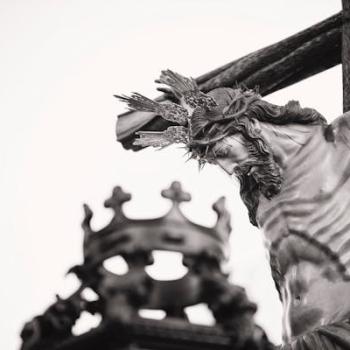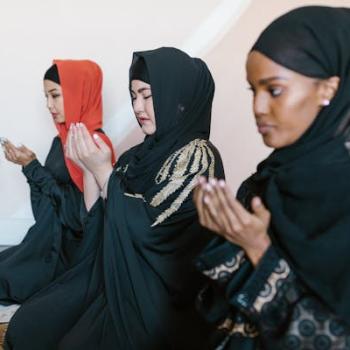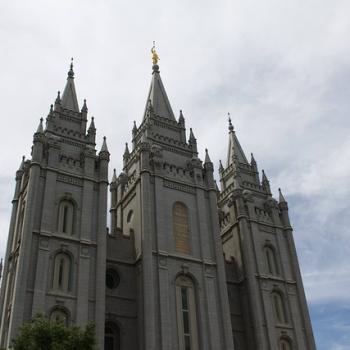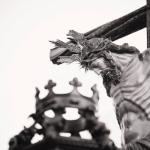THE QUESTION:
What is the world’s worst government in terms of restricting religious liberty?
THE RELIGION GUY’S ANSWER:
China. No contest.
That’s shown in an elaborate Pew Research Center accounting issued this month that covers all categories of official religion restrictions in 198 nations and territories as of 2018. The Communists who rule the world’s largest population expend incredible efforts on their atheistic crusades, and are equal opportunity offenders who attack both faith in general and a variety of specific religions.
Global religious conditions over-all are getting worse, Pew reports. It calculates there are other highly troublesome governments in this descending order of oppression: Iran, Malaysia, Maldives, Syria, Russia, Algeria, Tajikistan, Turkmenistan, Egypt, Eritrea, Indonesia, Saudi Arabia, Uzbekistan, Vietnam, Myanmar, Iraq, Morocco, Singapore, Kazakhstan, Azerbaijan, Turkey, Brunei, Mauritania, Western Sahara and Yemen. (North Korea information is lacking).
Though Pew doesn’t say this, you’ll see most of the worst are Communist, or Muslim, or post-Communist and Muslim. Yet one of the most distressing crackdowns is in Buddhist Myanmar (a.k.a. Burma), with its forced displacement of at least 14,500 Rohingya Muslims. As with China’s mistreatment of Muslims, noted below, ethnic and religious enmity are combined.
Examples of other problems: Uzbekistan put at least 1,500 Muslims in prison on charges of extremism. Tajikistan’s new religion law gives the regime control over appointment of Muslim imams, religious education, and foreign travel, and there’s been a roundup of Jehovah’s Witnesses. Thailand has arrested hundreds of Christian and Muslim refugees fleeing mistreatment in Pakistan and Vietnam. Methodist missionaries were forced out of the Philippines for investigating human rights abuses.
Pew separately lists countries on a “Social Hostilities Index,” referring to serious harassment of religions by private individuals and groups as opposed to governments (though governments often encourage or turn a blind eye to these problems). Here, India has the worst track record. Muslims there face continual dangers, while the official policy against conversions targets Christians, including charges filed against 271 in one region. Other especially troublesome populations are listed in this descending order: Iraq, Syria, Israel, Nigeria, Libya, Egypt, Pakistan, Central African Republic, and Sri Lanka.
By contrast, there’s scant government or societal oppression in the democracies of Europe, and even less in North America and South America. Though authoritarian regimes are prominent in the above lists, some such are surprisingly tolerant in official religion policy or have populations with little sectarian strife.
Turning back to China, here are basics from the World Christian Encyclopedia — the 2020 third edition belongs in every library with its statistics and information on every religious group within every country on the planet. This research work says that a “massive anti-religious program” was enforced from China’s atheistic takeover in 1949 through Mao’s manic “Cultural Revolution” of 1966-69, with periodic upheavals since.
On paper, the constitution grants freedom for “normal religious activities,” but, typically for Communism, “normal” is left undefined and China’s arbitrary legal system means official whims rule.
In recent times, the government has strived to exterminate Fulan Gong, a spiritual practice for self-improvement with roots in traditional Chinese medicine. More recently, severe persecution has been aimed at the Church of Almighty God, a Christian heresy built around prophecies of a woman believed to be the reincarnation of Jesus Christ. (China’s clampdown policy and limited theological education have produced many such sects.)
The longest-running campaign is against Buddhism in Tibet, with thousands of monks and nuns forced out of their communities. The current draconian anti-Islam program in the Xinjiang region suppresses Islam among ethnic Uighurs, Kazakhs and Hui, with a million or more forced into an archipelago of secret re-education camps — with little protest from Muslim countries.
The Encyclopedia estimates that today China has a total of 550 million atheists or agnostics, 504 million who follow assorted folk and ethnic religions plus the ancient faith of Taoism, 237 million Buddhists, and 25 million Muslims. About two-thirds of the 106 million Christians belong to independent congregations, mostly Protestant-style “house churches” that do not register their existence with the government and often worship “underground.”
This system of mandatory registration is at the heart of China’s religion policy and the nagging turbulence that results. To operate legally, a group must register with one of the five official associations under atheistic state control that cover Buddhism, Taoism, Islam, Protestantism, and Catholicism. This splits Protestants and Catholics into two camps, registered vs. unregistered.
Registered or not, religious education is forbidden to those under age 18. Publications and media access are tightly restricted, and activities closely surveilled using the latest technology. Public display of religious symbols is banned. Unregistered houses of worship have been shut down or leveled. Believers have reportedly been arrested, imprisoned without trial or convicted in secret trials, sent to psychiatric hospitals or forced labor camps, tortured, or subjected to forced atheistic indoctrination. Some die in prison.
For further information: There are 46 pages of sordid incidents in the China section of the State Department’s “2019 Report on International Religious Freedom” here: https://www.state.gov/reports/2019-report-on-international-religious-freedom/ The Pew Research report cited above is available here: www.pewforum.org/2020/11/10/in-2018-government-restrictions-on-religion-reach-highest-level-globally-in-more-than-a-decade Among many other sources, note the bitterwinter.org online magazine, produced by scholars who specialize in China’s religious situation.
Speaking of China, The Guy (dissenting from colleagues) rated as 2018’s top religion story the birth there of the first human babies conceived by the CRISPR technique. Such manipulation of DNA that is passed to future generations could eliminate diseases, but poses ethical quandaries about “playing God” to breed for strength or intelligence, the impossibility of unborn babies giving “informed consent’ to be subjects of experiments, and unknowable negative side effects. Anthropologist Eben Kirksey of Princeton’s Institute for Advanced Study examines the issues in his new book “The Mutant Project: Inside the Global Race to Genetically Modify Humans.” See https://us.macmillan.com/books/9781250265357










